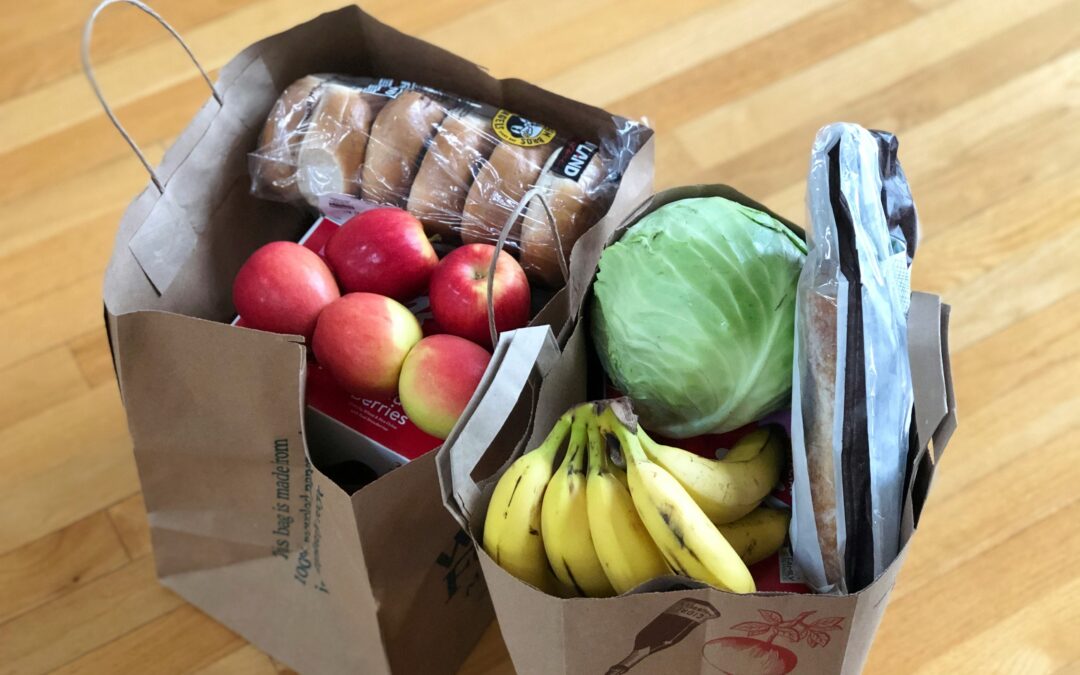KEY POINTS
- Owners of small businesses are growing increasingly negative about the US economy.
- This April Small Business IQ Poll identified that only 27% of small business owners agreed the economy was in “good” or “excellent” condition. Lowest rating since May 2021.
- Gov. Evers had the opportunity to ease the burden on small business owners but vetoed a measure to eliminate personal property tax.
- A poll from 2021 indicated that views of economic conditions worsened for residents of Wisconsin, surpassing their pessimism for 2020.
- Multiple restaurants had no choice but to shut down for good.
Small businesses across the United States have been hit hard by our current economic situation; Lake Country is no exception.
Owners of small businesses are growing increasingly negative about the US economy, and an overwhelming amount of them (77%) support an expansion of domestic fossil fuel infrastructure.
Job Creators Network Foundation revealed their April Small Business IQ Poll, which identified that only 27% of small business owners agreed the economy was in “good” or “excellent” condition. This figure is the lowest rating of the current economic situation since the organization started the poll in May 2021. The same survey found that business owners with less than 20 workers were the most pessimistic about the economy.
Job Creators Network Foundation President, Elaine Parker, released a statement regarding the poll results, “While the Biden Administration is touting a ‘small business boom’ and misdirecting the public, our polling shows without a doubt that Main Street is suffering.”
Around 57% of small businesses reported that they have or anticipate making significant operational adjustments due to the current economic and labor challenges, including high inflation, labor shortages, and supply chain issues, just to stay in business.
Governor Evers Fails to Act
Small businesses have been feeling the heat from persistently high inflation, disruptive supply chain issues, rising interest rates, and vast labor shortages. Business owners are also threatened with even higher taxes.
In 2021, Gov. Evers had the opportunity to ease the burden on small business owners he damaged with his authoritarian policies throughout the pandemic. Instead, he chose to veto a measure that would have eliminated property tax on businesses.
Evers signed a Republican budget bill that included $2 billion in income tax relief and around $650 million in property tax reductions but opposed 50 measures, including a $200 million provision that would do away with Wisconsin’s personal property tax on business. He also took credit for the tax cuts, although his budget proposal included over $1 billion in tax hikes.
State Sen. Duey Stroebel stated that Governor Evers’s decision to veto the bipartisan legislation was an assault on the small businesses of Wisconsin, the ones who “suffer the most under this inefficient tax policy.”
Evers kept businesses shut down for much longer than necessary during COVID. He deemed large chain stores “essential” while dismissing small businesses, labeling them non-essential and forcing them to stay shut. In addition, instead of encouraging workers to get back to work to help the struggling small businesses get back on their feet, he decided to continue handing out increased unemployment paychecks. When the legislature attempted to address these two problems, Evers vetoed AB 336 and AB 912.
State Representative Scott Allen commented about Evers’s failure to protect small businesses, “We need to pause and consider if Gov. Evers has really helped businesses as much as he would like us to believe on the eve of an election.” He adds, “Don’t be fooled by his election season handouts. Evers has failed Wisconsin businesses.”
Income Loss, Layoffs, and Closed Doors
These last four months of 2022 will be challenging for small business owners in Lake Country to navigate. Prices are high, labor markets are tightening, rates are up, and economic growth is slow. Moreover, the shifting US economy has affected each business sector differently, requiring each to adapt and adjust to avoid sinking.
Many Wisconsin businesses have continuously faced challenges since they had to close temporarily in 2020 due to the pandemic. Unfortunately, not much has improved, and the economic outlook has worsened.
The University of Wisconsin-Oshkosh conducted an economic impact survey that involved 2,538 businesses statewide from April 1-10, 2020.
Respondents reported 8,795 lost jobs in the first few days of Wisconsin’s safer-at-home order. In addition, Wisconsin businesses reported losing $75 million in inventory and $16.22 million in lost wages. Another $330 million was lost to other impacts. Two years ago, businesses reported losing $85 million in revenue and most reported 25%-50% decreases in productivity.
Wisconsin’s business impact also seemed to vary by region. For example, the New North, which includes 18 counties, reported a loss of $40 million in income in 2020. Many of these businesses said they are operating less than half as efficiently as before the pandemic. They also reported overwhelming sales tax deferral would be the most beneficial aid, among other needs like grants, income tax relief, lines of credit, new employees, renewed customer access, and no/low-interest loans.
About 200 Fox Valley businesses reported a $9 million loss in income and $38 million in inventory loss. These businesses are based in Appleton, Oshkosh, and Fond du Lac. Fox Valley businesses also expressed that they desperately needed no/low-interest loans, followed by income tax relief and grants.
The Centergy region of Wisconsin included 120 business respondents. These respondents reported $5 million in income loss, $2 million in inventory loss, and more than $671,000 in lost wages and productivity. They also stated they needed no/low-interest loans, grants, and income tax relief.
Small businesses across the badger state have voiced a need for tax relief. In contrast, Evers has continuously pushed massive tax hikes, and his administration pushed a tax on small businesses that received federal Paycheck Protection Program loans.
This poll from 2021 indicated that views of economic conditions worsened for residents of Wisconsin, surpassing their pessimism for 2020. About 23% of registered voters found the economy had improved, and 51% stated the economy was worse than it was a year prior. In addition, 22% reported it was the same.
Wisconsin voters believe Wisconsin is still on the wrong track, with 56% choosing that answer. This number is the most negative response Marquette Law School has ever received. The group compared these results to previous polls and noted, “negative views rose sharply in 2021 and remained little changed.”
Evers Puts Small Businesses on the Brink of Extinction
Chad Arndt, the owner of one of Wisconsin’s many small businesses, says Evers far-left policies and unnecessarily harsh COVID lockdown orders have significantly hurt his operations. As a result, Arndt says he and other small business owners (including democrats) will not be voting for Evers. He says the stakes are too high, adding, “If things don’t change this coming November, I think we’re in for a lot more hurt than what people think is coming.”
When the pandemic began in March 2020, Gov. Evers’ administration issued a statewide stay-at-home order, shutting the doors to schools, public places, and of course, the proclaimed “non-essential” businesses. Chad Arndt is the owner of The Iron Hog Saloon in Port Washington. His Saloon was one of the many bars, restaurants, retailers, salons, and gyms forced to cease all in-person business. This decision left many companies struggling to keep their heads above water.
Arndt’s businesses suffered. His employees had families to feed, and he couldn’t just stop paying his bills, so he announced the re-opening of the Iron Hog Saloon, going against Evers’ lockdown order.
Arndt wrote on Facebook, “We will be taking all precautions with keeping everything sanitized the best we can and distancing people. Please, if you don’t feel ready to come out yet, don’t! I will respect your feelings and decisions to stay home and self-quarantine; I am asking you to please respect mine. I need to not only make sure I can keep making a living, but I need to make sure my employees and [their] families can as well.”
Multiple restaurants had no choice but to shut down for good, including downtown hot spots like Ale Asylum, Jackson’s Blue Ribbon Pub, Johnny V’s Classic Cafe, Trysting Place Pub, and many more. A survey conducted in 2020 revealed that 35% of Wisconsin businesses believed they would have to close their doors permanently.
The Wisconsin Supreme Court ultimately overturned Evers’ stay-at-home order in a 4-3 ruling. The economy has dramatically impacted small businesses throughout Wisconsin since the pandemic hit, and 2022 has followed suit.
Unfortunately, the economic outlook concerning small businesses is worse than ever. With November rapidly approaching, Wisconsin voters have the opportunity to shift gears or keep things the way they are today.










